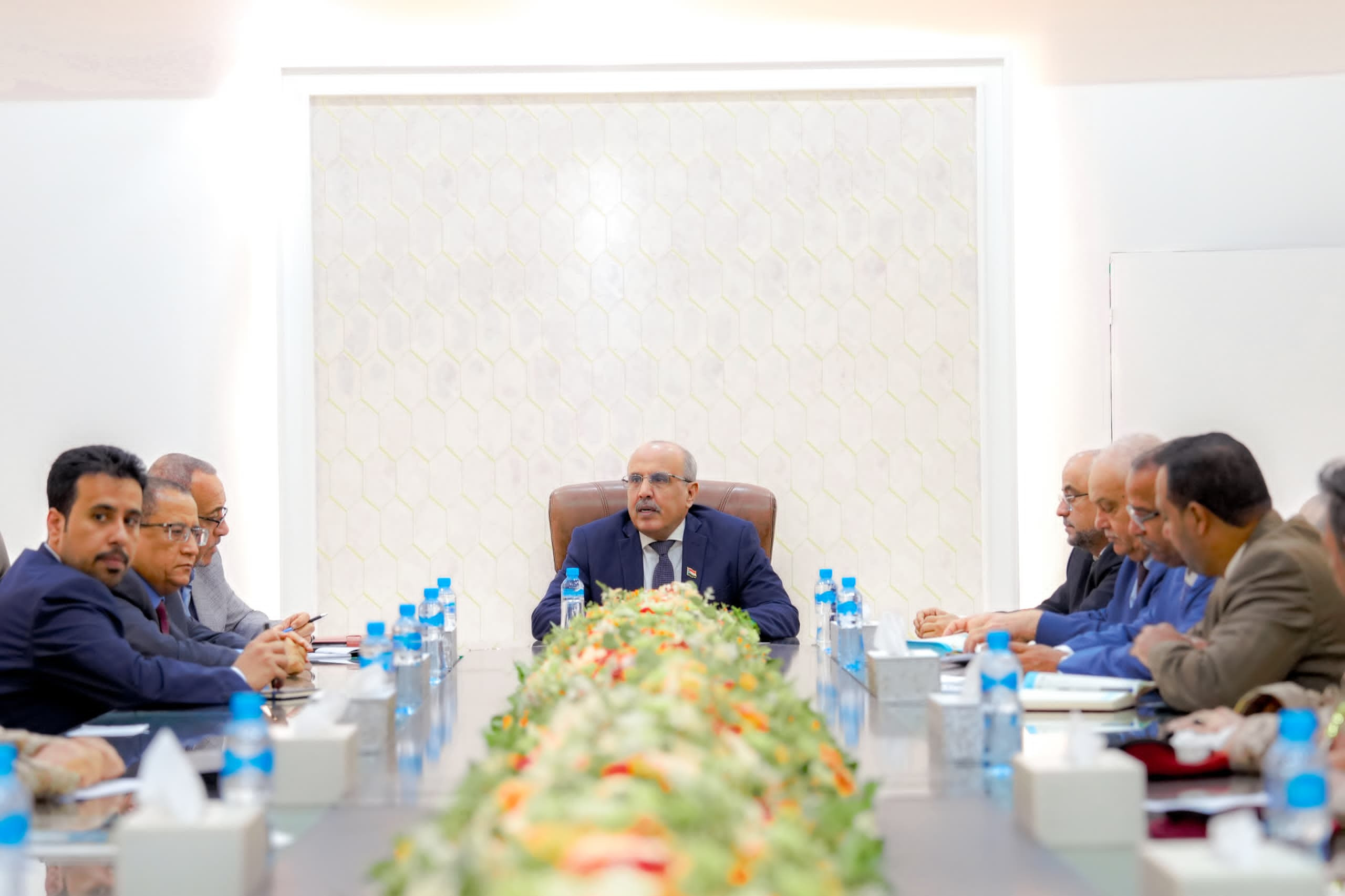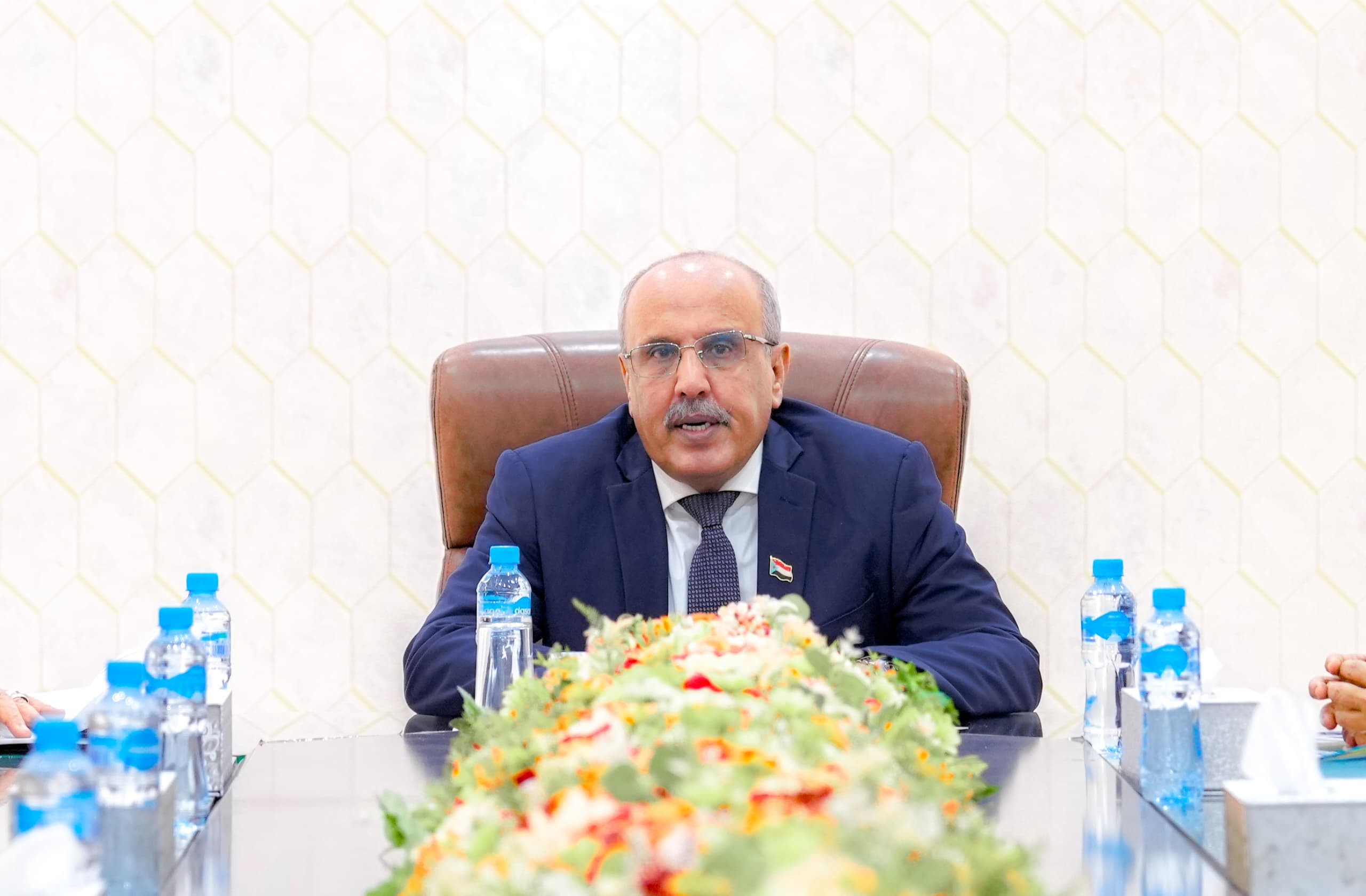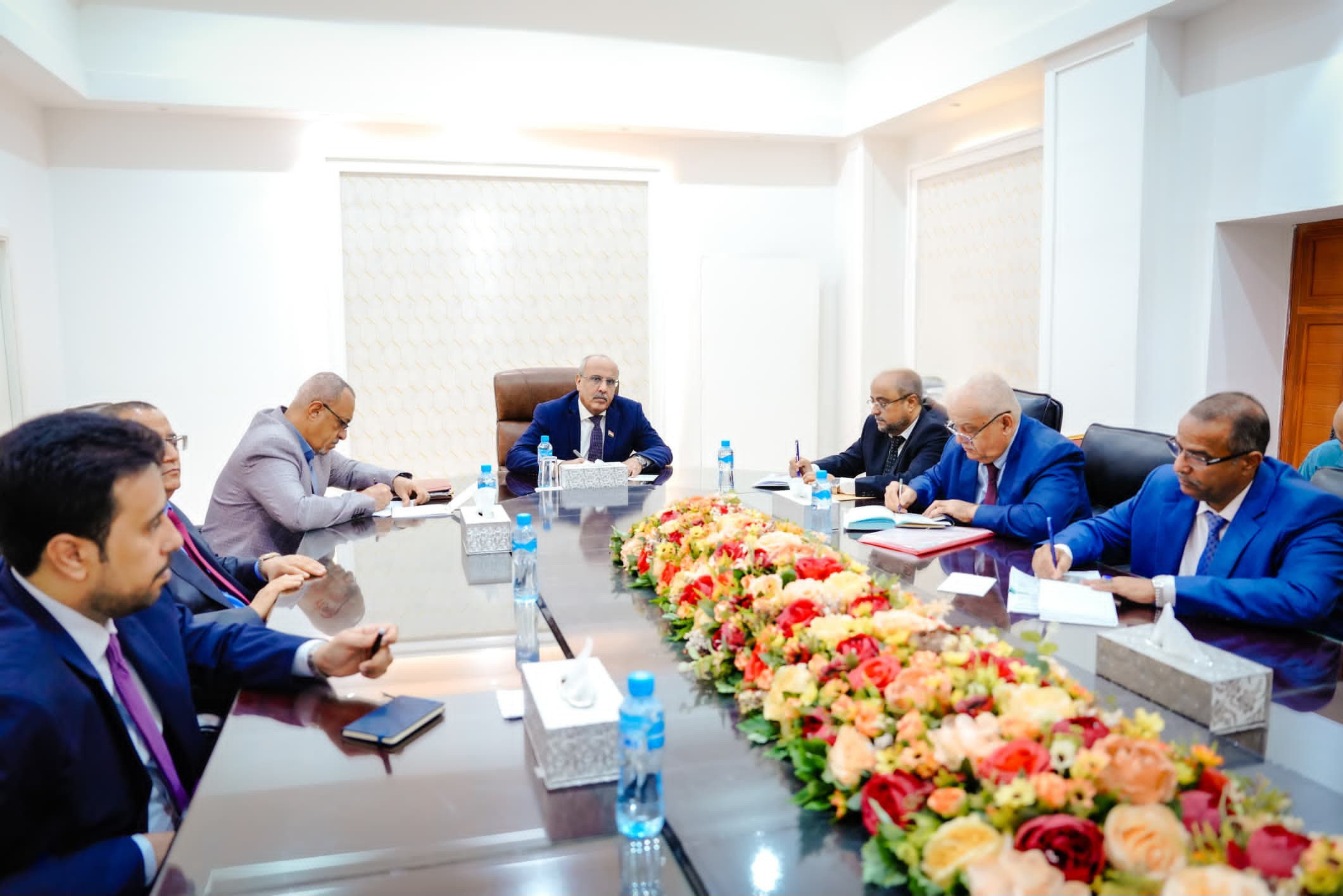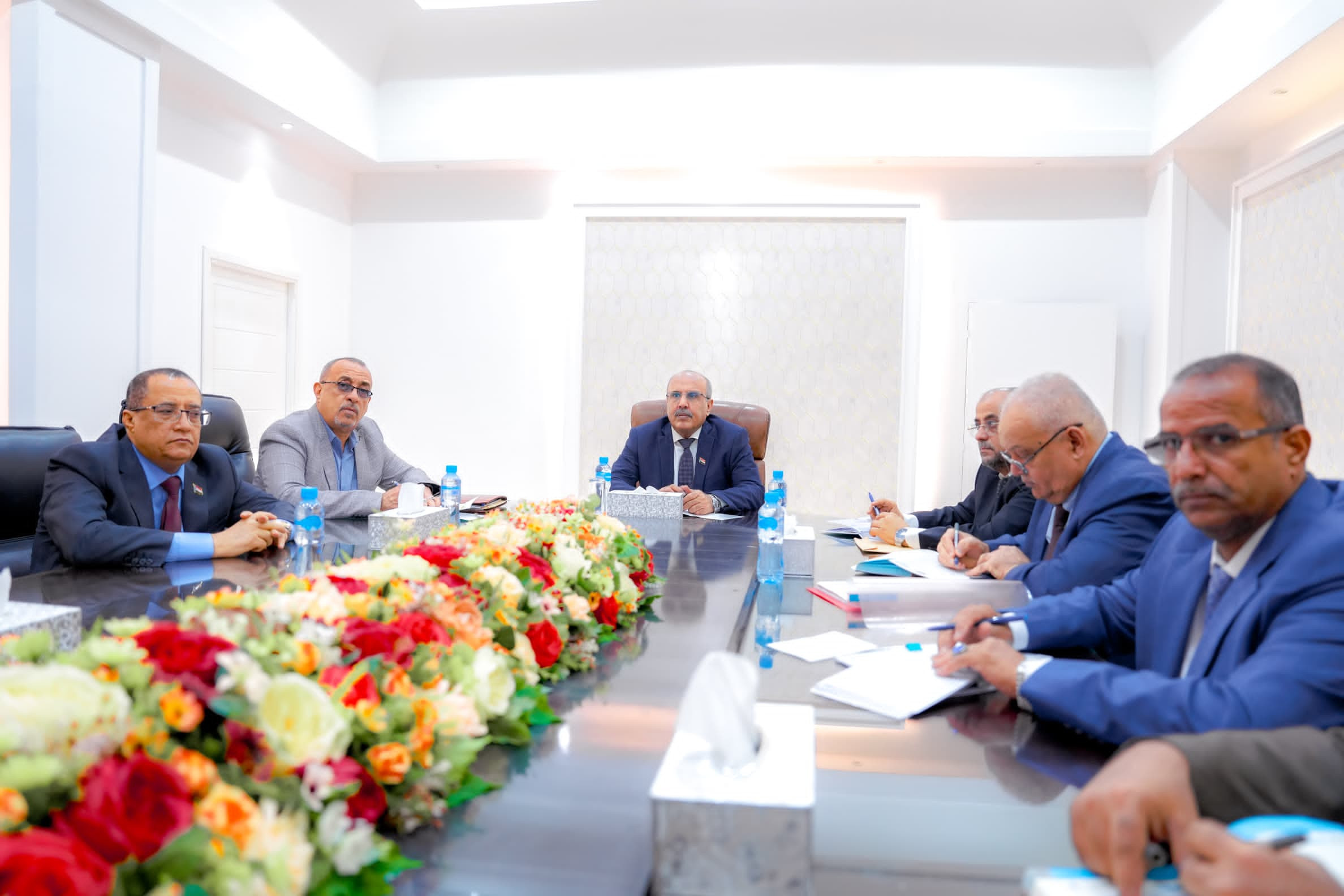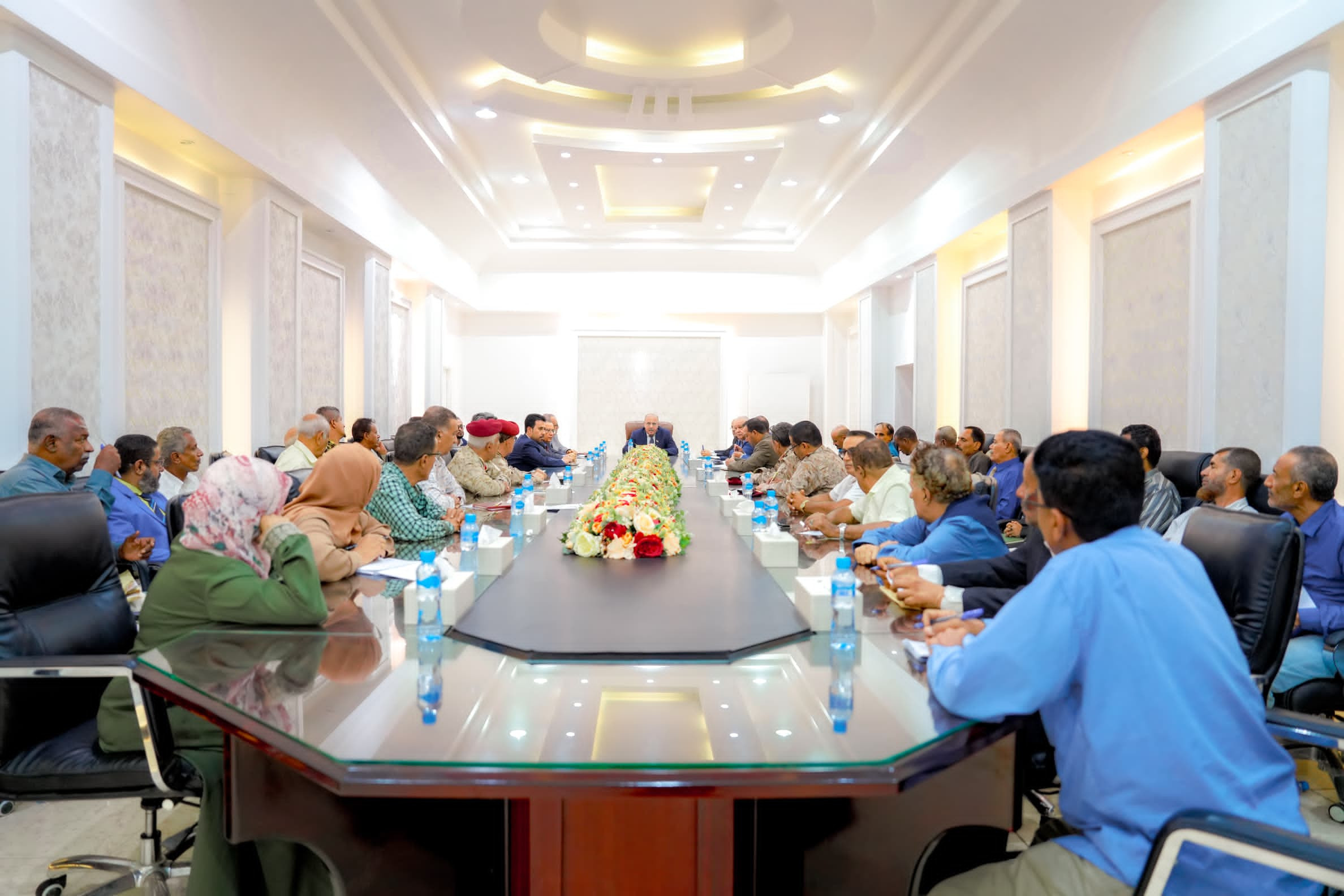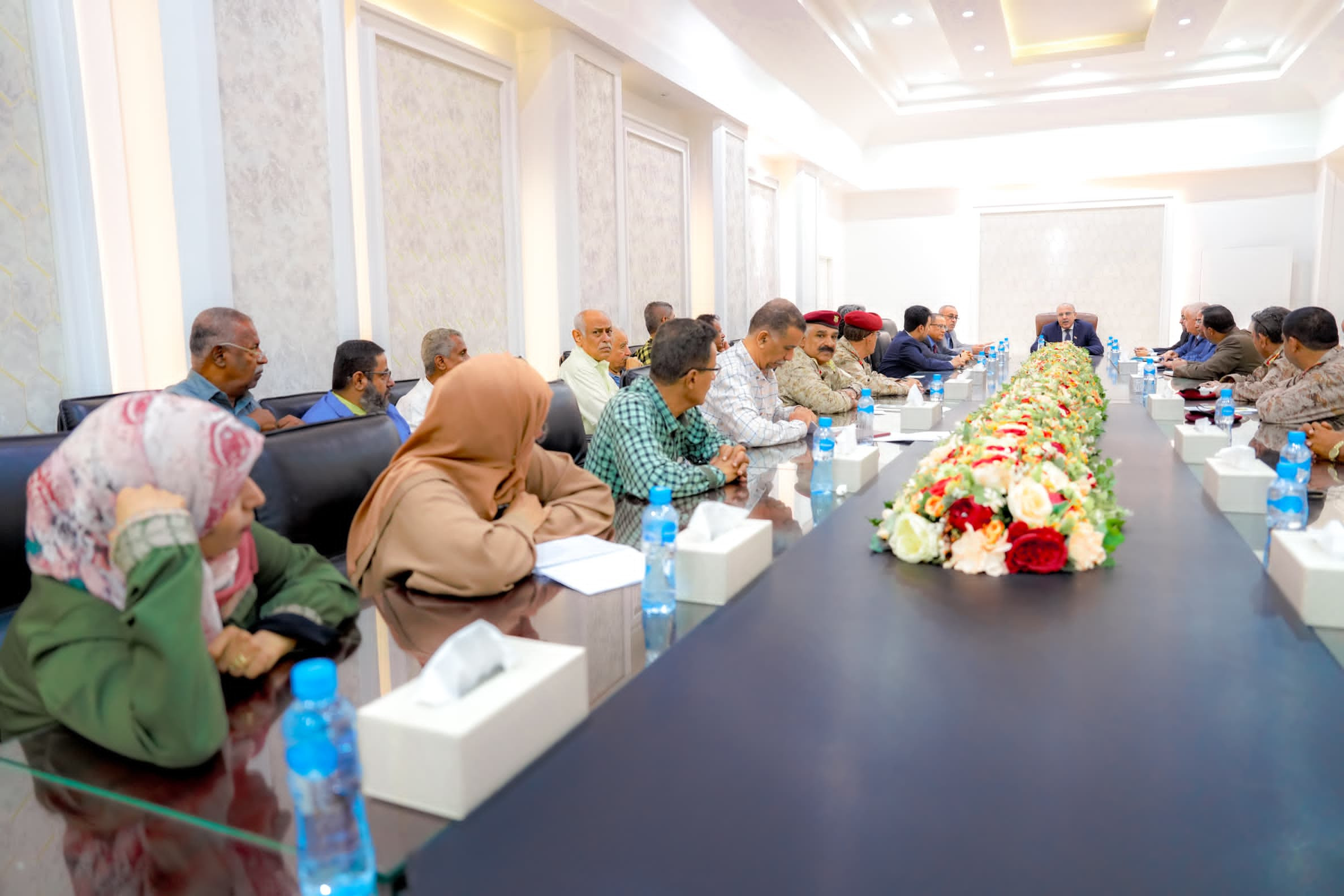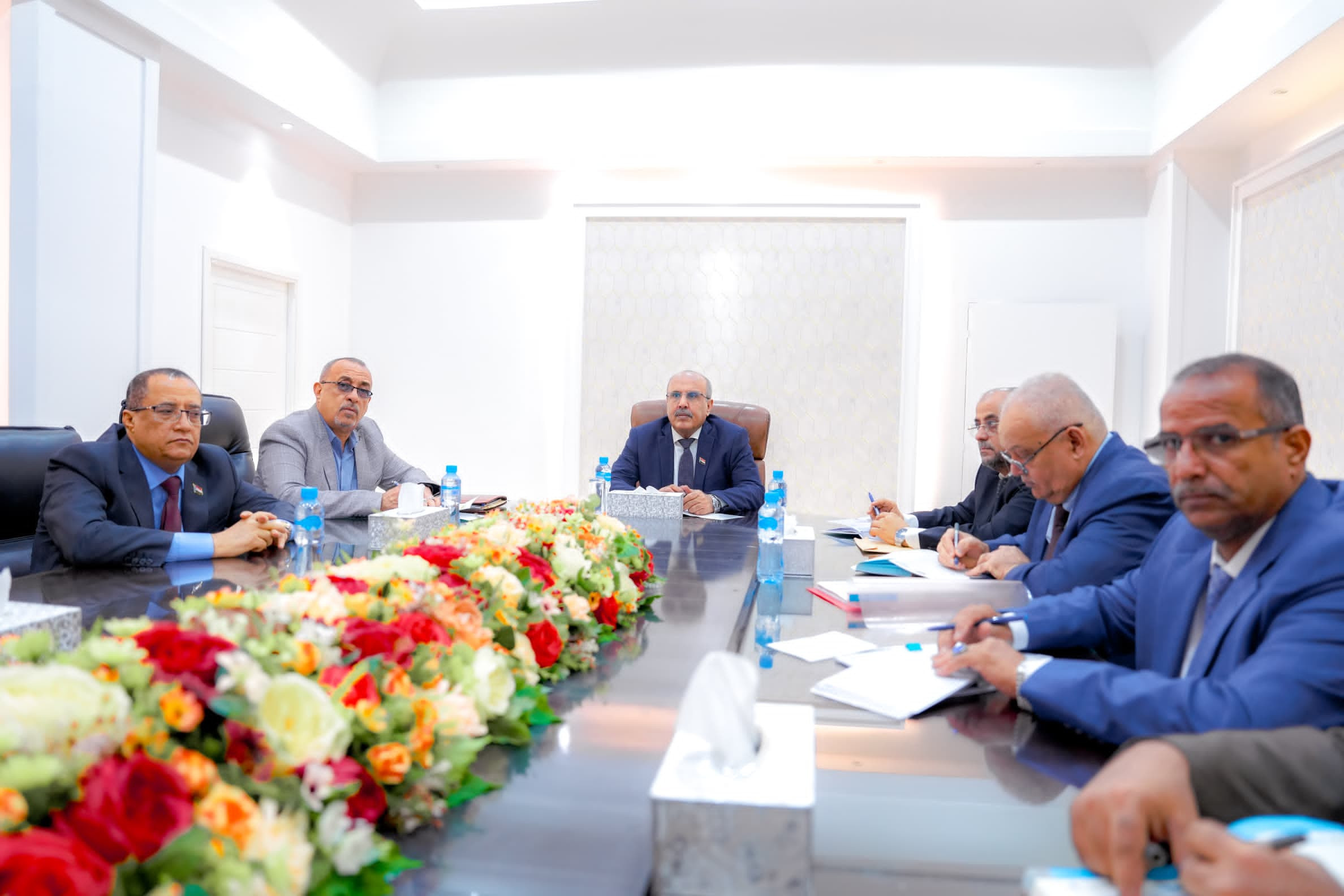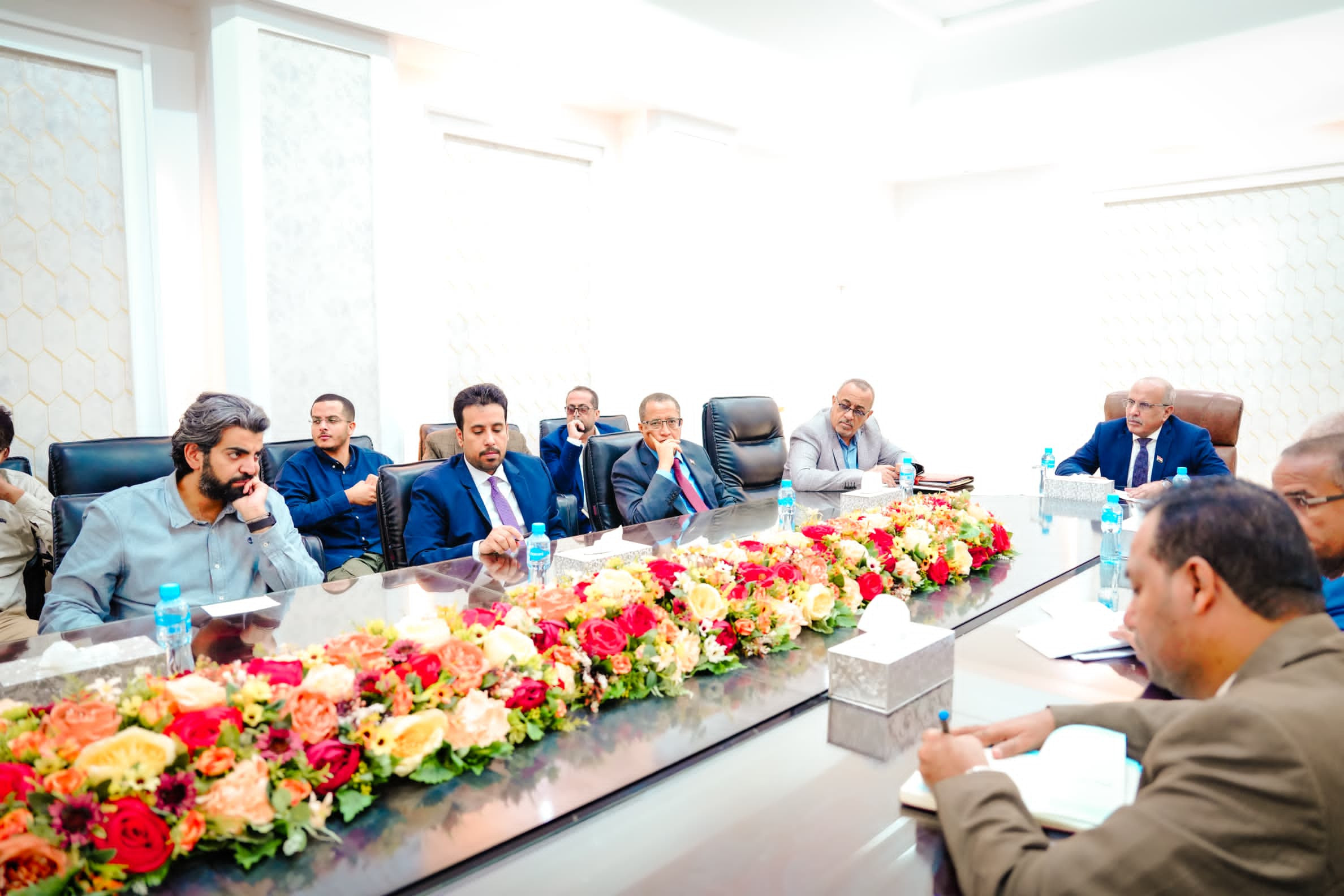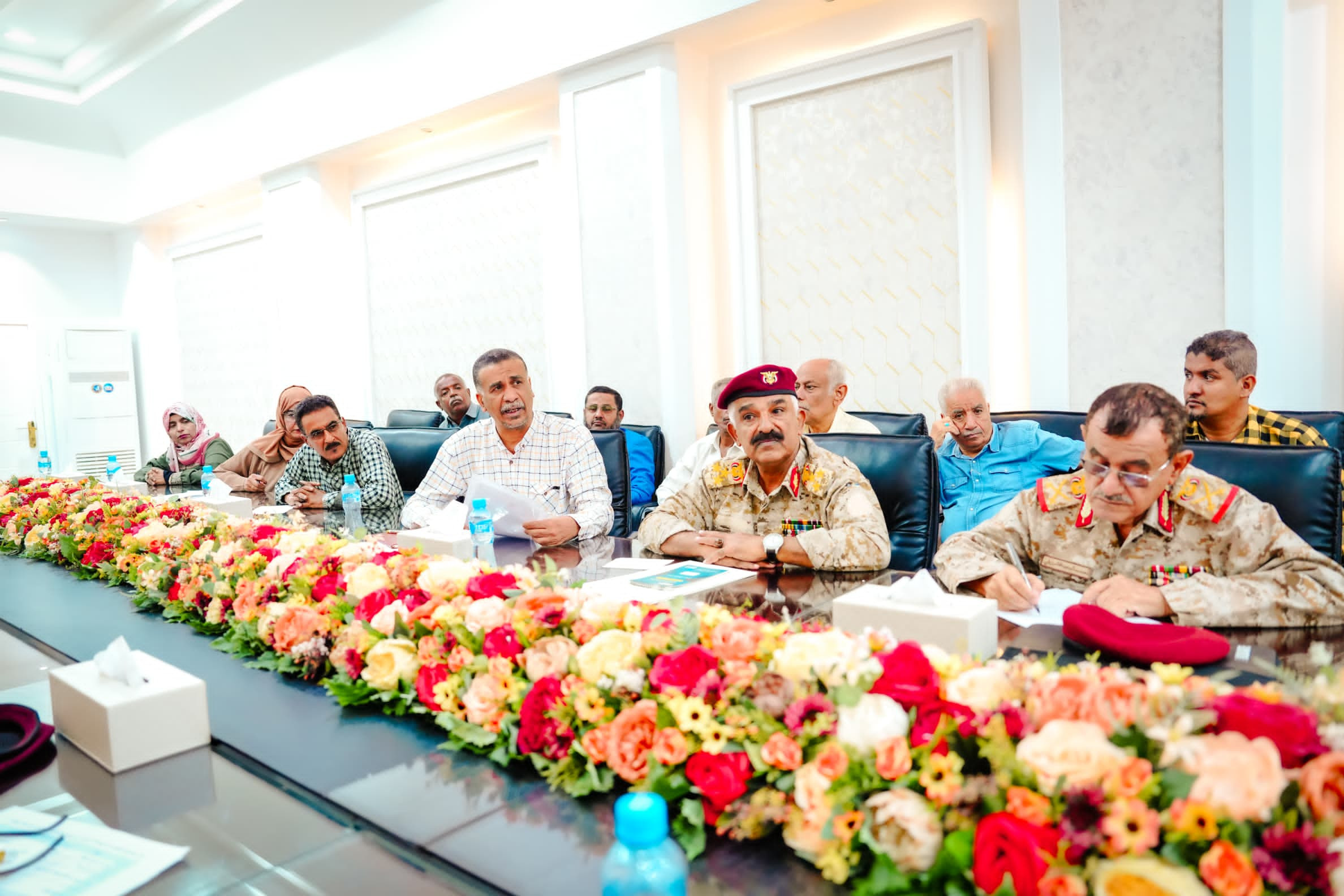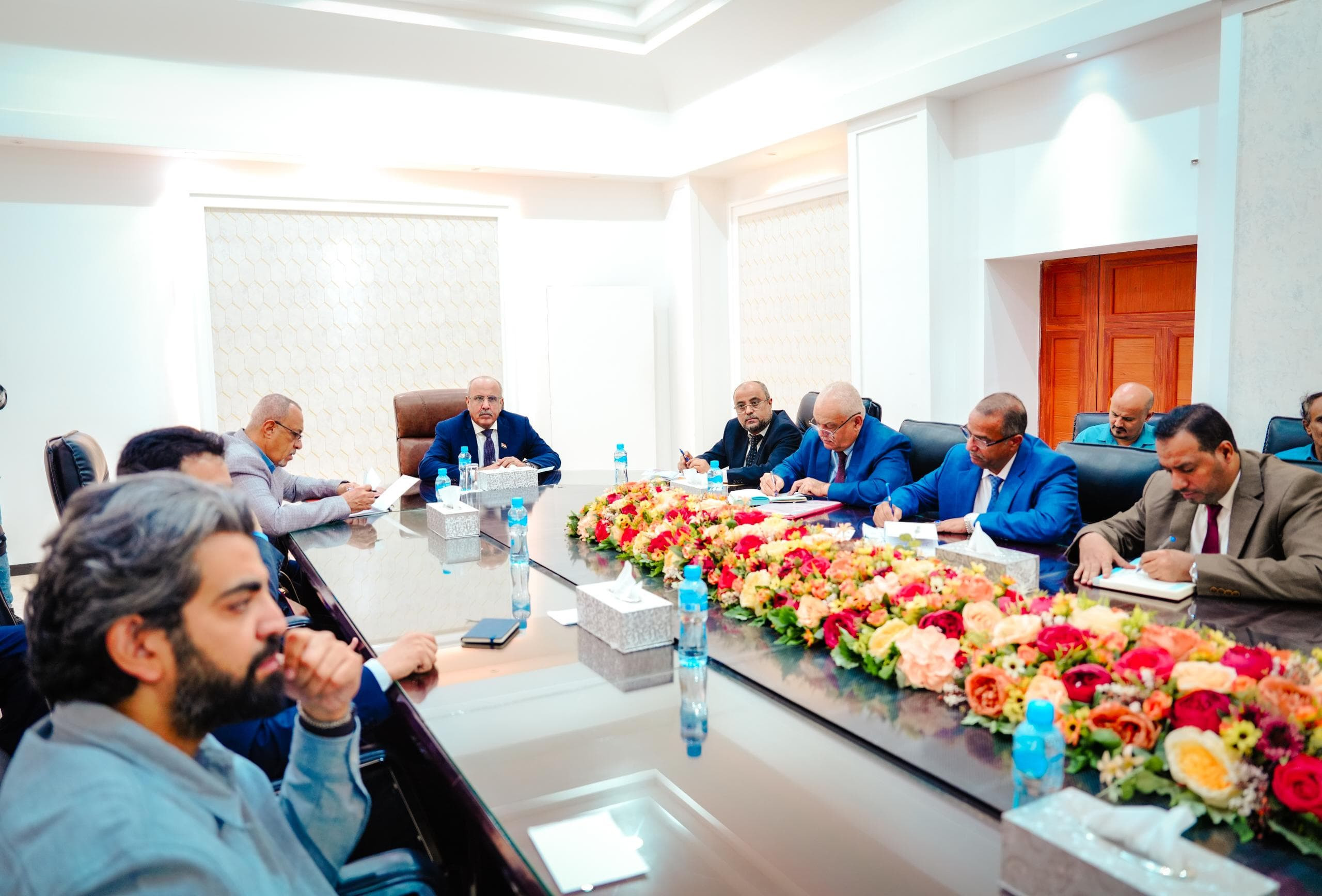Al-Muharrami Stresses Key Role of Private Sector in Stabilizing Currency and Growing Economy
Mr. Abdulrahman Al-Muharrami, Deputy President of the Southern Transitional Council (STC) and member...
As per the directives of President Aidarous Qassem Al-Zoubaidi, President of the Southern Transitional Council (STC) and Vice-Chairman of the Presidential Leadership Council (PLC), Mr. Ali Abdullah Al-Kathiri, Acting President of the Southern Transitional Council (STC) and Chairman of the National Assembly, chaired, today, Tuesday, an expanded meeting of headship of the unions affiliated with the General Federation of Workers' Unions of the South (GFWUS) and military and security bodies of the STC, and the Supreme Coordination Council for forcibly laid off military, security, and civilian personnel, with the participation of the STC's ministers in the government.
Mr. Al-Kathiri began the meeting, which was attended by members of the STC's Presidium, Major General Kamal Hamshari, a member of the Presidium of the STC and Acting Secretary-General and Director of the Office of the President of the STC, Dr. Nasser Al-Khubaji, Head of the Political Commission assisting the Presidium of the STC, Head of the Negotiations Affairs Unit, Mr. Mohammed Al-Ghaithi, member of the STC's Presidium, Head of the Consultation and Reconciliation Commission (CRC) supporting the PLC, Mr. Amr Al-Beidh, member of the STC's Presidium and Special Representative of the President of the STC for Foreign Affairs, in a speech in which he stressed that this meeting is an extension of previous gatherings held by the STC with the unions and civil society organizations, GFWUS and military and security bodies of the STC, to discuss the overall situation and speak candidly about the suffering of our people in economic, living, and service-related aspects, and to seek urgent solutions to end this suffering.
The headship of GFWUS, along with representatives from military and security bodies, subsequently presented the general vision for the planned escalation program in protest against the economic deterioration, poor living conditions, and various rights-based demands. They called for immediate action from the PLC and government to address these issues and implement urgent solutions through a time-bound mechanism, urging ministers to assume their responsibility for adopting these demands, arguing that they represent the bare minimum for a decent life for the people of the South and will gradually contribute to restoring social and economic stability.
In turn, Ministers of Finance, Civil Service and Insurance, Social Affairs and Labor, and Education have outlined the government's efforts to halt the economic decline and implement an urgent spending plan and measures to stop the currency collapse and cover the state's budget deficit. This comes amid the halt of oil and gas exports following the targeting of export ports by the Houthi terrorist militia and the cessation of many public financial revenues that the state relies on, including the failure of certain liberated governorates to supply the public revenues to the central bank in the capital, Aden, which has created a real deficit for the government in fulfilling its obligations. The ministers affirmed that the government is exerting every effort with its Arab coalition partners and the international community to address the citizens' living needs and find immediate and practical solutions to resolve this crisis.
The meeting resulted in the formation of a committee comprising representatives from the GFWUS' headship, the head of the military authority, the head of the Supreme Coordination Council for forcibly laid-off military, security, and civilian personnel, and the head of the Aden University Staff Union. This committee will follow up on all demands and rights with the PLC and the government until a matrix of urgent measures is developed to curb the escalating economic and living deterioration. The committee will also work to find effective solutions to all the severely mounting crises, including the currency collapse, service shortages, and delayed salary payments.
